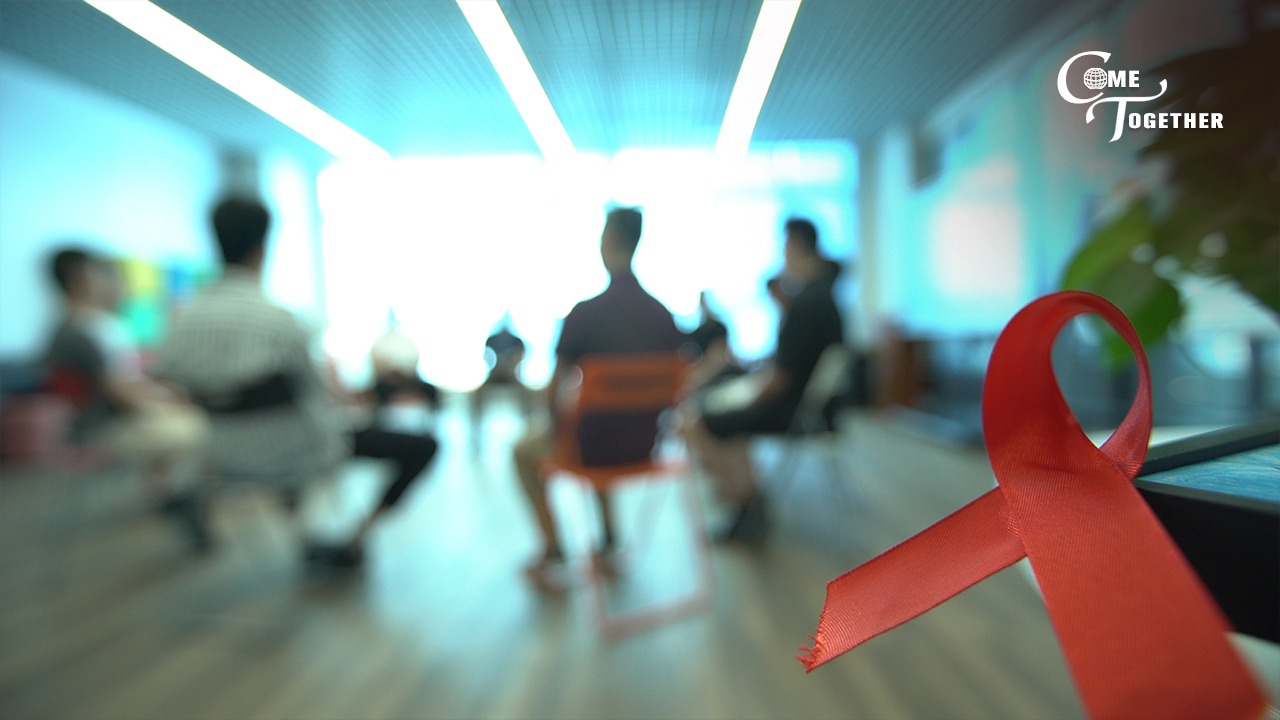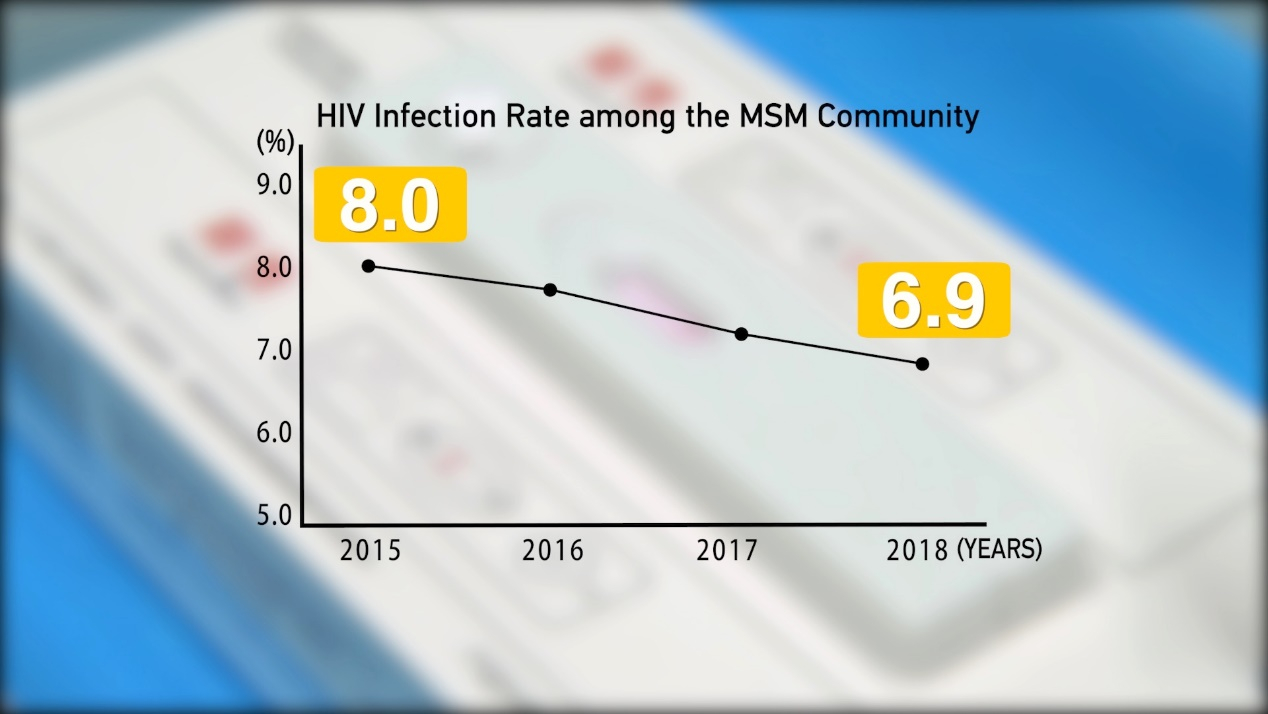06:54

Editor's note: December 1 marks World AIDS Day. In this episode of "Come Together" series, CGTN looks at community efforts to end the epidemic in China.
"At first, it feels like you've been abandoned by the whole world. When no one approves of you, when you are different from everyone else, and when you are the only person in the room, you really will break down," recalled Xiaofeng (pseudonym), who is HIV-positive.

After five years of antiretroviral medication, the HIV in Xiaofeng's body has been largely suppressed to an undetectable level. /CGTN Photo
After five years of antiretroviral medication, the HIV in Xiaofeng's body has been largely suppressed to an undetectable level. /CGTN Photo
In October 2014, Xiaofeng walked into a nonprofit HIV testing center in Beijing, where he tested positive for HIV. His nightmare began after one time of unprotected sex with another man. But being homosexual doesn't necessarily equate to being HIV-positive.
According to the World Health Organization, HIV continues to be a major global public health issue, having claimed more than 32 million lives so far. Approximately 37.9 million people were living with HIV at the end of 2018. Data from China's National Health Commission show that the disease is mainly transmitted sexually in China. Men who have sex with men (MSM) accounted for 23.3 percent of all reported cases of HIV infection in 2018.
"Although the MSM community accounts for only 1-2 percent of the whole population, they make up 23-24 percent of the total AIDS infections in China," Dr Wu Zunyou, chief epidemiologist with the Chinese Center for Disease Control and Prevention (China CDC), told CGTN. "This is indeed a very high percentage."
Communities matter
In July 2015, the China AIDS Fund for Non-Governmental Organizations was launched by the Chinese government. As of November 2019, some 188 million yuan (26.8 million U.S. dollars) had been allocated to AIDS control projects by non-governmental organizations (NGOs) in the past four years. The money has gone to more than 3,500 projects operated by nearly 1,000 NGOs nationwide.
Among these NGOs, there is one called "Danlan." Its founder Ma Baoli is currently livestreaming HIV/AIDS prevention information to thousands of followers. Ma established Danlan in 2008 to promote HIV/AIDS prevention among the MSM community.

Ma Baoli, founder of Danlan. /CGTN Photo
Ma Baoli, founder of Danlan. /CGTN Photo
"Our entire organization knows how to use the internet to deliver our services to our target audience," Ma Baoli, founder of Danlan, told CGTN.
Identifying people with HIV is vital to HIV/AIDS prevention and control. In 2015, to support the government in its anti-AIDS drive, Danlan gathered some 200 HIV test centers nationwide via the internet and rolled out an online test service that was then introduced to target groups via the MSM community social networks. Combining online appointment-making and offline testing, the service garnered over six million page views and more than 200,000 appointments.
In 2016, Danlan was invited to the 21st International AIDS Conference to share its experience in Internet plus HIV prevention and control.
Similar to Ma, most of the 130 plus members of Danlan are gay. "Our biggest advantage is that we come from the community, so we know everything about it. We can relate to them and understand the challenges they face. We know about their needs because there is empathy between us," Ma said.
"Communities make the difference" is the theme for this year's World AIDS Day, emphasizing that communities need to play a leading role in the prevention and treatment of HIV/AIDS.
"The power to fight AIDS comes from within. Only when the communities realize this can we truly combat AIDS," said Dr. Wu.

The HIV infection rate among the MSM community in China is decreasing. /CGTN Graphics
The HIV infection rate among the MSM community in China is decreasing. /CGTN Graphics
According to the China CDC, in 2018, more than half of the new HIV cases among the MSM community were found through the help of social groups. Through the concerted efforts of the government and social organizations, the rate of HIV infection among the MSM community has dropped from 8 percent in 2015 to 6.9 percent in 2018. Also, as of 2015, new HIV cases in the MSM community have been fairly stable at around 34,000 people per year.
"Communities in China are making a significant difference in response to HIV. The China AIDS Fund for NGOs has been established by the government as a partnership with communities," Eamonn Murphy, director of the UNAIDS Regional Support Team of Asia and Pacific Region, told CGTN. "China is a great model. The community partnership is why China is so successful in addressing HIV and will continue to improve and be even more successful."
Joint efforts
China identified its first AIDS patient in June 1985. Since then, its anti-AIDS drive has paid off through the implementations of various policies and regulations. According to the China CDC, the country has basically eliminated HIV transmission through blood transfusions and has effectively contained intravenous drug use and mother-to-child transmission of HIV. In 2018, around 1.25 million people were HIV-positive, which works out to about 9 cases per 10,000 people, or a seventh of the average infection rate compared to the rest of the world. Currently, HIV/AIDS in China is maintained at a low prevalence level.
Since 2018, Ma Baoli and his colleagues have visited Southeast Asian countries many times. Working with local governments and social organizations, they shared their experiences in using the internet to promote HIV/AIDS prevention and control among target groups.
After five years of antiretroviral medication, the HIV in Xiaofeng's body has been largely suppressed to an undetectable level.
Identifying people with HIV is not to discriminate against them but to ensure that they can get the help they need and lead normal lives. This will be an important step toward achieving the UNAIDS vision to end the AIDS epidemic by 2030.
"Fear comes from ignorance," Xiaofeng said. "When you go to learn more, there is no need to be prejudiced against it."